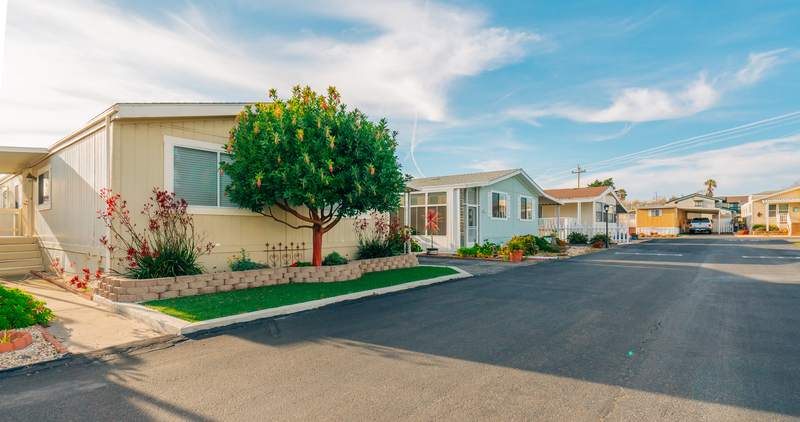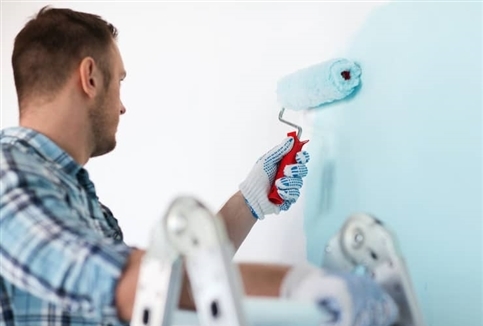If you need cash for a home remodel, debt consolidation or your child’s college tuition, you may be able to tap your home’s equity with an FHA cash-out refinance. This type of loan lets you replace your current mortgage with a larger FHA-backed loan. After paying off your current mortgage with the new loan, you can pocket the difference and spend it on nearly anything.
FHA cash-out refinances offer numerous benefits, including less stringent credit requirements and competitive interest rates. Let’s take a closer look at how this refinance program works and what you’ll need to qualify for a loan.
Key Takeaways:
- FHA cash-out refinances let borrowers pay off their existing mortgages with a larger loan, leaving them with cash for home improvements, debt consolidation or other purposes.
- You can generally borrow up to 80% of your home’s appraised value with an FHA cash-out refinance, though eligibility criteria vary by lender.
- FHA cash-out refinances are available to borrowers with any mortgage type, not just those with existing FHA loans.
What Is An FHA Cash-Out Refinance?
An FHA cash-out refinance allows you to replace your existing mortgage with a new, larger FHA loan, providing you with a surplus of cash after paying off your old loan. The money you receive from an FHA cash-out refinance can be used for a wide range of purposes, including:
- Home improvements and remodels
- Debt consolidation
- Consolidating a first and second mortgage
- Paying off student loans
FHA loans, including cash-out refinances, are backed by the Federal Housing Administration (FHA). Many borrowers choose to refinance into an FHA loan because these loans are backed by the Federal Housing Administration, minimizing risk for lenders and allowing them to use less stringent loan qualification parameters, such as lower credit score requirements. On the other hand, FHA loans come with mandatory mortgage insurance premiums.
How Does An FHA Cash-Out Refinance Work?
Similar to a conventional cash-out refinance, an FHA cash-out refinance allows you to replace your current mortgage and convert a portion of your home equity into cash. While you don’t need an existing FHA loan to qualify for an FHA cash-out refinance, you do need to meet specific home equity, credit and income requirements. We’ll cover this more in detail below.
Because your FHA cash-out refinance loan amount is based on your home’s market value, you’ll first need to get a home appraisal. Generally, you can borrow up to 80% of your home’s appraised value with an FHA cash-out refinance, though eligibility criteria vary by lender.
If you meet your lender’s requirements and your loan is approved, you’ll receive a new loan term and monthly payment – ideally with a lower interest rate. As with a regular mortgage, you’ll need to pay closing costs on your new loan.
Many lenders offer FHA loans, so do your research into lender terms and reputations before you apply.
FHA Cash-Out Refi Example
Let’s say you borrowed $250,000 to purchase your home. You’ve paid $70,000 toward your mortgage, putting your remaining loan balance at $180,000. The current market value of your home is $275,000.
As mentioned above, you can generally borrow up to 80% of the current value of your home with an FHA cash-out refinance. Given these numbers, you can borrow up to 80% of $275,000, which is $220,000. After paying off your current mortgage balance of $180,000, you’re left with $40,000 to spend (before paying closing costs).
What’s Your Goal?
Buy A Home
Discover mortgage options that fit your unique financial needs.

Refinance
Refinance your mortgage to have more money for what matters.
Tap Into Equity
Use your home’s equity and unlock cash to achieve your goals.
FHA Cash-Out Refinance Requirements
Though often more accessible to low-credit borrowers, FHA cash-out refinances have specific borrowing requirements. These typically include the following:
- Credit score: Though FHA loans are known for having credit score requirements as low as 500, you’ll need a score of at least 580 to qualify for an FHA cash-out refinance.
- Debt-to-income ratio: Specific debt-to-income (DTI) requirements depend on your credit score and lender, but it may be possible to be approved with a DTI exceeding 50%.
- Loan-to-value ratio: The loan-to-value (LTV) ratio represents the amount you owe on your home compared to its current value. To qualify for an FHA cash-out refinance, your LTV can’t exceed 80% of your home’s value.
- Payment history: To be approved for an FHA refinance, you can’t have had any late mortgage payments over the previous 12 months.
- Length of residence: You need to have owned and lived in your residence for a minimum of 12 months.
FHA Cash-Out Refinance Loan Limit Guidelines
Besides ensuring you meet your lender requirements, you’ll also need to verify you can get an FHA cash-out refinance for the amount you want.
The FHA uses the area you live in and the number of units you own in your property to determine FHA loan limits, which often change annually. In 2025, the FHA loan limit for a one-unit property was $524,225 in low-cost areas and $1,209,750 in high-cost areas. (There are exceptions for certain locations, such as Alaska and Hawaii.)
To find the specific loan limit in your area, use the FHA mortgage limits tool provided by the U.S. Department of Housing and Urban Development.
Ready to Refinance?
Get matched with a lender that can help you reach your financial goals.
How Much Equity Can You Access With An FHA Cash-Out Refinance?
You can generally access up to 80% of your home’s market value with an FHA cash-out refinance. However, you still need to pay off your remaining mortgage balance.
Here’s an example: Say your home is worth $400,000. You owe $200,000 on your mortgage. With an FHA cash-out refinance, you can borrow up to 80% of your home’s value, or $320,000. Before spending the cash, you need to pay off your existing $200,000 loan. After doing so, you have $120,000 remaining.
Remember, you’ll also need to pay closing costs, which typically cost 2% – 6% of the total loan amount. In this case, if closing costs were 4% of your loan amount, you’d be left with $107,200 in cash.
Advantages And Disadvantages Of FHA Cash-Out Refinances
Before applying for an FHA cash-out refinance, review potential pros and cons to determine if this loan option is right for you.
| Advantages | Disadvantages |
|---|---|
| Typically lower interest rates compared to other loan types | Increases your debt burden |
| Lets you tap your home equity for a variety of purposes | Reduces your available home equity |
| More lenient eligibility requirements | Must pay mortgage insurance premiums |
Advantages
FHA cash-out refinances can have several distinct advantages, including the opportunity to tap into equity that can be used for a wide array of purposes. Another positive is the lower credit score requirements that make it easier to qualify for the loan.
FHA loans are also popular due to their competitive interest rates. Since lenders generally face less risk, borrowers may have a better chance of securing a lower interest rate with an FHA loan compared to a conventional one.
Disadvantages
But for all their advantages, there are a few disadvantages associated with FHA cash-out refinances. One major consideration is that refinancing involves taking on additional debt and reducing your available home equity.
Another downside is having to pay mortgage insurance premiums, which are required on all FHA loans. This type of mortgage insurance requires an upfront payment at closing as well as smaller monthly payments.
View Your Refinancing Options
Find a refinance lender that will work with your unique situation.
FHA Cash-Out Refinance Alternatives
If you want to use your equity or change your loan terms without using an FHA cash-out refinance, there are several alternatives to consider:
- Conventional cash-out refinance: If you have good credit and substantial equity, a conventional cash-out refinance may allow you to access funds and remove your FHA mortgage insurance all at once.
- Home equity loan or HELOC: While a refinance allows you to change your mortgage rate and term, you might want to keep your current home loan intact. If that’s the case, you can use a home equity loan or home equity line of credit (HELOC) to tap your home equity.
- FHA Streamline refinance: This type of refinance loan allows FHA borrowers to replace their loan without an appraisal, so they can lower their interest rate or change their loan term. However, you won’t be able to access your equity with this option.
The Bottom Line: Make The Most of Your Home Equity
Cash-out refinances let homeowners leverage the equity in their homes to consolidate debt, make home improvements, or fund a variety of other goals. An FHA cash-out refinance can make this process even easier due to less stringent loan qualification requirements. You don’t need an existing FHA loan to get an FHA cash-out refinance, but you should compare your options to make sure it’s the best deal for you.

Ben Shapiro
Ben Shapiro is an award-winning financial analyst with nearly a decade of experience working in corporate finance in big banks, small-to-medium-size businesses, and mortgage finance. His expertise includes strategic application of macroeconomic analysis, financial data analysis, financial forecasting and strategic scenario planning. For the past four years, he has focused on the mortgage industry, applying economics to forecasting and strategic decision-making at Quicken Loans. Ben earned a bachelor’s degree in business with a minor in economics from California State University, Northridge, graduating cum laude and with honors. He also served as an officer in an allied military for five years, responsible for the welfare of 300 soldiers and eight direct reports before age 25.












